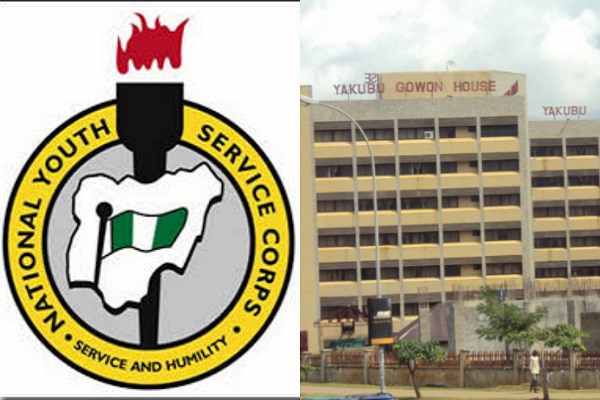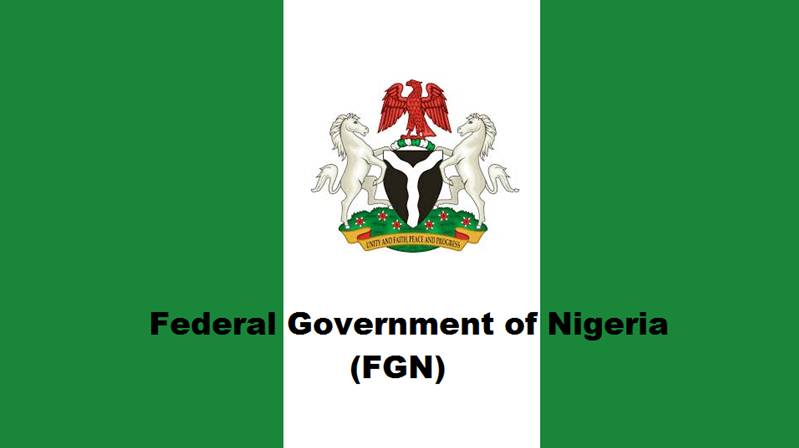General
Cash-Strapped Nigeria Again Loses $650.7m Crude to Force Majeure

Nigeria again lost a whopping $650.7 million to crude oil losses resulting from declaration of force majeure, equipment failures and host communities’ disturbances between the April and May production cycle.
When converted to naira, the country’s local currency, using the official exchange rate of N420/$, the amount Nigeria lost for the period was an estimated N273,296,023,560.
On the average the price per barrel of oil, according to a THISDAY review, sold for approximately $114 last month.
To put it in proper context, the gross domestic crude oil and gas revenue from sales for the entire month of May was N426.14 billion, the highest in months.
The amount of oil lost during the period extracted from the Nigerian National Petroleum Company Limited (NNPC) presentation to the Federation Account Allocation Committee (FAAC) excluded the massive volume stolen in the Niger Delta region.
The document detailing the national oil firm’s activities for May, showed that over 5.707 million barrels of oil were lost to the breakdown of production equipment, protest from community workforce arising to shutdowns as well as a fire outbreak at one of the terminals.
Still struggling with meeting its oil production quota, the Organisation of Petroleum Exporting Countries (OPEC) last week revealed that Nigeria reported a paltry 1.024 million barrels per day production in May, a multi-year low. With the latest figure released by the OPEC, it meant that Nigeria’s underperformance was as high as 700,000 barrels per day for the month, although the cartel’s total allocation to Nigeria exceeded 1.75 million bpd for the month.
The 1.024 million bpd production (through primary communication) was about 195,000 bpd less production when compared with the April’s total of 1.219 million bpd, OPEC said.
Despite assurances by the various government agencies, what the OPEC figures implied was that rather than improve, the country’s oil production has actually deteriorated in the past months.
Although the authorities have always fingered massive theft as one of the reasons for its inability to meet its quota, the areas rarely discussed include incessant equipment failure and prolonged maintenance of broken down facilities.
On the issue of theft, the federal government had also months ago, deployed heavy military presence in the Niger Delta to curb the menace.
But the OPEC data confirmed that the action has not made any difference, as nothing appears to have changed since the rejigging of the security arrangement in the region.
Specifically, the biggest loss for the period, according to the latest NNPC document, came from the force majeure declared at the Bonny terminal since March 2022. For the entire month, Nigeria lost 3.450 million barrels of oil from the facility.
Force majeure refers to a clause in contracts that allows both parties to walk out of the contract when an extraordinary event or circumstance beyond the control of the parties happens.
The report stated that crude oil production at the terminal has now dropped significantly to as low as three million for the period while the terminal operator has temporarily halted operations.
The next biggest curtailment of production came from Odudu terminal with a total of 937,663 barrels of crude oil shed by the country due to maintenance work on the facility.
In Yoho and Excravos terminals respectively, the country’s production was curtailed to the tune of 56,000 barrels and 53,000 barrels to low production due to flare management as well as community crisis at the south swamp. Bonga lost 174 barrels to repair work.
Furthermore, Brass lost 180,000 barrels due to a failed equipment, Jones creek terminal lost 809,600 barrels due to shut-in resulting from a combination of broken down equipment and community workers’ protest while Ukpokiti and Aje were curtailed to the tune of 210,000 and 11,000 barrels respectively.
Nigeria has some of the most preferred crude in the world since most of it is free of sulphur and remains the largest producer of sweet oil in OPEC. The country’s sweet crude oil is known as Bonny Light.
The country has a number of petroleum terminals run mostly by International Oil Companies (IOCs) like Shell, Mobil, Chevron, Texaco, and Agip.
THISDAY had reported how with over 3.65 million barrels of crude oil shut-in at the Bonny Terminal during the March/April productions circle, Nigeria’s total losses, month-on-month rose by over 300 per cent.
Overall, between March 3 and April 1, the production curtailment pushed the country’s total loss to 5.545 million barrels of crude for that month as opposed to 1.69 million barrels previously.
General
Customs generated N275.8m in Ogun in 2024 – Comptroller

Nigeria Customs Service (NCS), Ogun 1 Area Command, says it generated a total revenue of N275.8 million within the state in 2024.
The Comptroller of the command, Mr Mohammed Shuaibu, disclosed this during a news conference on Tuesday in Idiroko, Ogun.
Shuaibu said that the ‘huge revenue generation’ was made possible through the diligent efforts of the command’s officers and cooperation of traders.
He also said that the command was able to achieve the milestone through intelligence-driven operations and dedication of the officers.
“The revenue was actualised through the collection from baggage assessment, proceeds from auction sales of premium motor spirit (PMS) and vehicles,” he said.
Shuaibu listed the items seized to include: 16,712 bags of foreign parboiled rice, 139,881 litres of PMS, 940 rounds of live ammunition, 71 sacks of Cannabis Sativa and 3,253 parcels of same substance.
Others were: 586 bales of used clothes, 86 vehicles used for conveyance, 18 foreign used vehicles, 2,150 pieces of used pneumatic tyres, 760 pieces of donkey skins, 3,766 cartons of frozen poultry products and 85 bags of imported flour.
“These achievements are a testament to our efforts at combating smuggling activities, protecting the economy and safeguarding the well-being of the society,” he said.
Shuaibu commended the Comptroller-General of Customs, Mr Adewale Adeniyi, for his continuous support and for creating an enabling environment for the command to thrive.
He also lauded the officers and men of the command for their resilience, professionalism and dedication to duty, saying that these were instrumental to achieving the milestones.
General
NYSC seeks Osun transport system’s support for safety movement of corps members

The National Youth Service Corps (NYSC) has solicited for the support of Osun State Transport Management System (OSTMS) to enable corps members deployed to the state to locate the orientation camp with ease.
Mrs Funmi Okundaye, NYSC’s Assistant Director, Information and Public Relations Unit in Osun, stated this in an interview with the News Agency of Nigeria (NAN) on Monday in Osogbo.
NAN reports that the 2024 Batch C, Stream II corps members deployed to the state will commence their three-week orientation between on Jan. 22.
According to her, the transportation management system plays key roles in the movement of corps members to the camp and their various places of deployment across the state after the compulsory three-week orientation.
“The OSTMS roles cannot be over-emphasised, looking at the assistance being rendered to some corps members who have never been to the state before,’’ she said.
Okundaye called for more assistance from the organisation to enable corps members locate the orientation camp with ease.
According to her, the swearing-in of the new corps members will hold on Jan. 24 at the state orientation camp ground, with notable stakeholders expected to be in attendance.
She called for the support of all stakeholders in making the exercise a successful one.
Okundaye assured that NYSC would not relent in achieving its set goals and objectives, especially for the corps members deployed in the state.
Education
FG harps on skills acquisition, education for women in detention

The Federal Government, on Tuesday, emphasised the critical role of skills acquisition and education in the rehabilitation of women in detention.
Minister of State for Education, Dr Suwaiba Ahmad, stated this at “the Women in Detention Workshop”, organised by Prison Rehabilitation and Welfare Action (PRAWA), in Abuja.
The News Agency of Nigeria (NAN) reports that the event was organised to mark PRAWA’s 30th anniversary.
Ahmad, who stressed the need for addressing the needs and rehabilitation of women in detention, said that such women must be equipped with adequate skills for self-reliance.
“This gathering reflects our shared resolve to ensure that even within the four walls of correctional facilities, women are afforded the dignity, support and opportunities necessary to rebuild their lives.
“Education, both formal and informal, is central to the transformative power of rehabilitation. It is not merely a tool for personal development but a lifeline that can open doors for reintegration and independence.
“For women in detention, education is a pathway to self-discovery, self-reliance and the restoration of hope. Beyond education, skills acquisition is a critical component of rehabilitation.
“Many women in detention face economic hardship and social exclusion which often perpetuate cycles of criminality,” she said.
Ahmad said that by equipping them with skills relevant to their communities and marketable in today’s economy, such women would be empowered to return to society as productive and self-reliant individuals.
Ahmad further said: “Rehabilitation and reintegration are not acts of charity; they are investments in humanity.
“By prioritising the education, skill acquisition and special needs of women in detention, we create a society that values second chance and upholds the dignity of every individual,’’ the minister said.
Earlier, the Executive Director of PRAWA, Dr Uju Agomoh, said the organisation, a CSO, was established in 1994 to promote security, justice and development in Africa.
She also said that the event was designed to tackle the broader issues of prison conditions as well as human rights violations and rehabilitation.
“One key initiative is training health workers and legal professionals on how to document and address torture cases, focusing on the internationally-recognised `Istanbul Protocol’.
“In addition, PRAWA is working closely with Nigerian universities, including University of Lagos, University of Abuja and several others.
“This is to introduce paralegal training programmes that will empower students to assist in legal and human rights efforts within the criminal justice system,” Agomoh said.
-

 Headlines4 years ago
Headlines4 years agoFacebook, Instagram Temporarily Allow Posts on Ukraine War Calling for Violence Against Invading Russians or Putin’s Death
-

 Headlines4 years ago
Headlines4 years agoNigeria, Other West African Countries Facing Worst Food Crisis in 10 Years, Aid Groups Say
-

 Foreign3 years ago
Foreign3 years agoNew York Consulate installs machines for 10-year passport
-

 News1 year ago
News1 year agoZero Trust Architecture in a Remote World: Securing the New Normal
-

 Entertainment3 years ago
Entertainment3 years agoPhyna emerges winner of Big Brother Naija Season 7
-

 Headlines1 year ago
Headlines1 year agoNigeria Customs modernisation project to check extortion of traders
-

 Entertainment2 years ago
Entertainment2 years agoMovie download platform, Netnaija, announces closure
-

 Economy2 years ago
Economy2 years agoWe generated N30.2 bn revenue in three months – Kano NCS Comptroller













